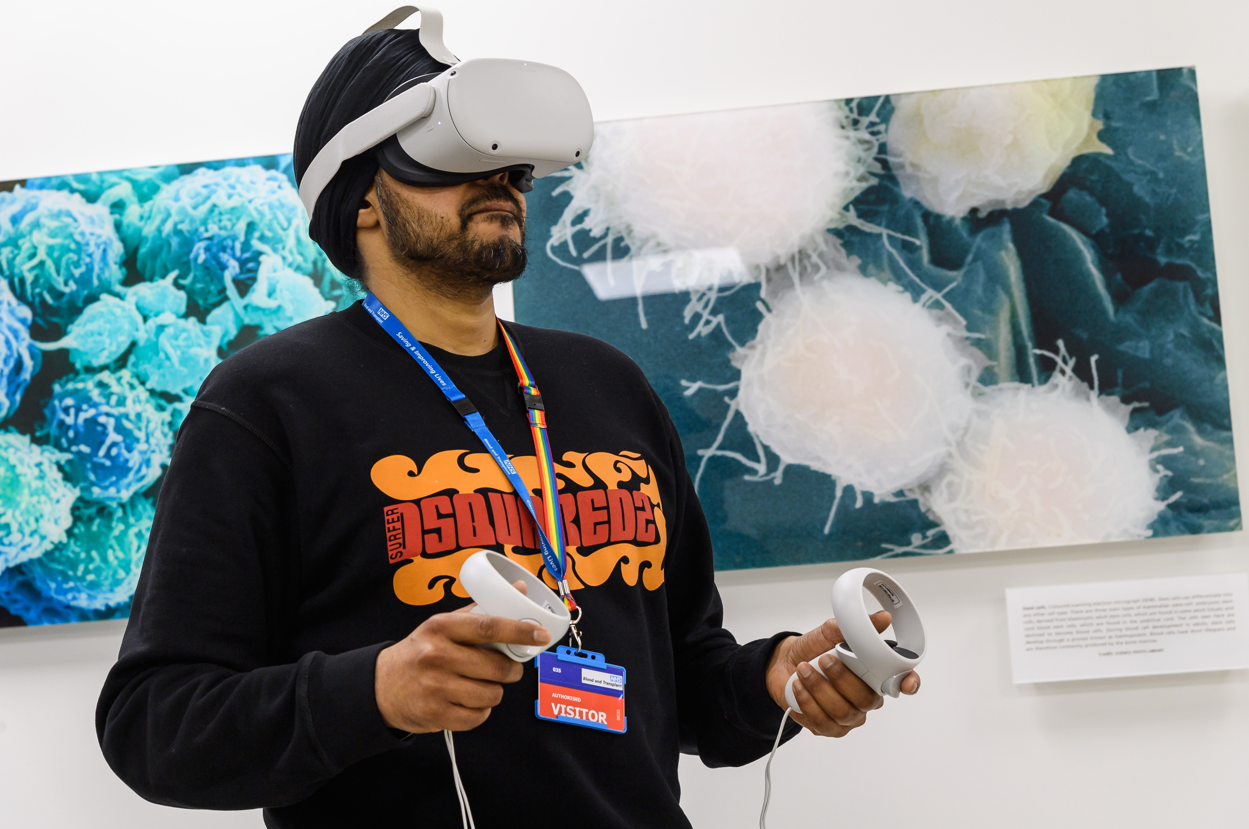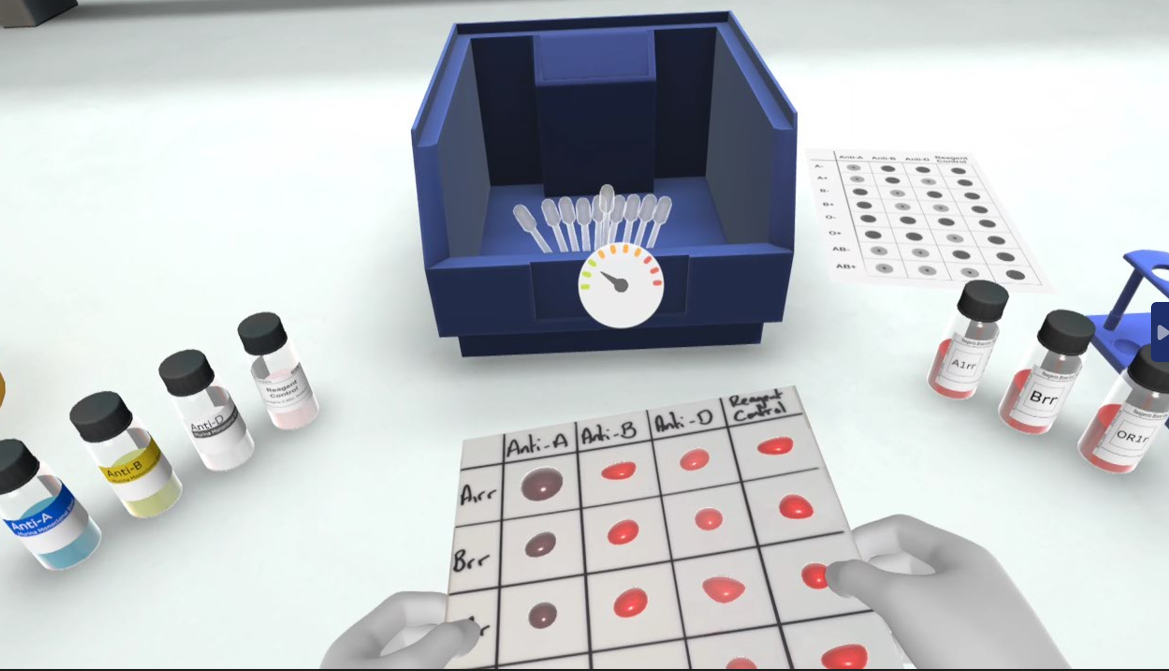NHS Blood and Transplant now using virtual reality training for blood transfusion matching
A man who receives lifesaving blood used a new NHS virtual reality package to learn how blood is matched.
NHS Blood and Transplant (NHSBT) has released its’ first innovative virtual reality training app ‘NHSBT Blood Identification’ which realistically simulates the process of testing blood for lifesaving blood transfusions.
This opens up its world-leading training to more students interested in a career in biomedical science or transfusion science.
Rajpal Singh from St George’s in Bristol, who needs regular blood for thalassaemia, visited the NHSBT Filton site in Bristol to join a training session in the practice lab, learning how to match blood types for safe transfusion. He used the new virtual reality app and also used the real lab equipment.

The new VR training is already being used in NHSBT and has just been launched on the Meta Quest App Lab store.
During this immersive training programme, users meet a patient and enter a virtual transfusion laboratory.
Just as in real life they will be guided through the process required to test the blood group of a sample and select the correct unit of blood for a blood transfusion.
The user then gets feedback on the outcome of the transfusion. If the wrong blood is given in error, the trainee sees the red cells bursting and the heart monitor goes flat.
The app aims to give training an engaging, hands-on environment. It also aims to increase awareness of the transfusion science specialism and boost the recruitment of scientists to the profession.
NHSBT also recommends the app to secondary schools, colleges and universities to help inspire young people to take up careers in transfusion science. Staffing challenges throughout the NHS mean hospitals can currently face challenges recruiting enough trained transfusion specialists to their transfusion labs. Reports and strategies have also indicated that there was an increasing need to improve levels of transfusion knowledge and competency to improve patient safety. Blood transfusion training is lifesaving, with NHSBT issuing around 1.4m blood components each year, but if blood is mismatched it can cause a transfusion reaction, which can be fatal.
The app was developed with Make Real. Over the course of 14 minutes, users meet a patient, then enter a virtual laboratory where they test a sample of their blood by selecting reagents, mixing them and checking to see if the cells clump together. They then select a unit of blood and hang it by the patient bedside for transfusion. The handset realistically recreates the sense of holding items such as the pipettes.
Housing Officer Rajpal Singh, 43, from St George’s in Bristol, receives two units of blood every fortnight for thalassaemia major at the Bristol Royal Infirmary.
He needs regular transfusions because his body does not produce enough haemoglobin, which carries oxygen around the body.
Without those 52 units of blood every year, he would become more and more tired and unwell and eventually the complications would become life threatening.
Raj, who is married with one child, said: “Blood transfusions give me energy – I am lethargic and can’t really concentrate before a transfusion but afterwards I am full of energy. They enable me to live as normal a life as possible. Without them, life would be very difficult and ultimately I would die.
“It was really exciting and informative to able to visit and try the Virtual Reality blood matching. The use of the headset enhanced the immersive experience and it was great to see what the process is when cross matching blood. I also enjoyed the experience of going into the lab and using real laboratory equipment.
“There’s lots of innovation in the NHS at the moment with better blood matching and it’s reassuring to know blood is matched, safe and available. There is a need for blood donors especially people who have the less common blood groups, for example of black and Asian heritage.”
